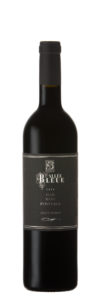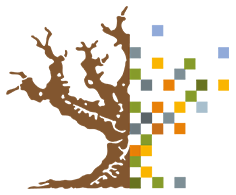The Business of Wine course, presented by The University of Cape Town Graduate School of Business (UCT GSB), is a one-of-kind training programme that focusses on the business aspects of wine. It brings together various professionals across the wine value chain and gives delegates critical market insights and the leadership skills to maximise their own and their organisations’ opportunities in the industry.
The Old Vine Project and UCT GSB are closely related due to project’s representation in the curriculum. In a recent collaboration between Winetech, UCT GSB, and Stellenbosch University, Jonathan Steyn and Associate Professor David Priilaid conducted ground breaking pricing research in the old vine category. The paper was awarded the Oxford University Press Best Marketing track paper at the South African Institute of Managements Scientists Conference (SAIMS). Read more here.
Old Vine Project Manager, André Morgenthal, was invited as one of the keynote speakers at The Wine Business Management Certificate Ceremony, held on 29 November 2018 at The Stack in Cape Town. Here is the extract of André’s address on Sustainable Innovation in the wine industry.
SUSTAINABLE INNOVATION IN THE WINE INDUSTRY
Congratulations and well done to the Graduates. Jonathan, David and Kumeshnee, thank you for the opportunity to speak here today, it’s an honour for the Old Vine Project to be closely related to the UCT GSB. Not only to be part of the curriculum, but more recently the insightful research supporting a premium price point for wines made from Old Vines. The UCT GSB has been part and parcel involved with the OVP from the beginning, with Jonathan assisting us on strategy and direction.
The Old Vine Project is indeed a game changing example of innovation. Innovation is not always about inventing something completely new; sometimes its about transforming something old and bringing it back to life. Invention is the process to create new concepts or products. Innovation is the process that transforms these ideas into commercial value. It can be new combination of existing resources.
When the Old Vine Project set off in 2016, the task was to save vineyards of 35 years and older: our viticultural heritage. As per definition, we were reviving the old and forgotten vineyards, with an ambition to turn the concept into a commercially viable model, on various levels. This would include more sustainable payment models for grapes, keeping farmers on the land and the workers in their jobs.
Why is it necessary to change the industry?
1. To improve the image
When I was still at Wines of South Africa, the value of old vine wines became evident through the interest in these wines. Old Vines clearly enhanced the image of the South African wine category internationally and continue to do so.
2. Quality
Quality was the driving the interest, along with the stories, the authenticity and purity of the narrative. Limited quantities; exclusive; world class.
3. Grape and wine / bottle prices
It’s all well and fine to tell the stories and to experience the mystical elements of these wines, but the reality is to keep these vines in the ground and keep the farming community in business.
Old Vines have always been there, longer than many of us. The innovation of the Old Vine Project is that it is the first initiative worldwide to formalise the certification of old vine wines, with a seal, linked to traceability.
The project takes into account the triple bottom line:
- People: Improved conditions for farmers and workers.
- Planet: Sustainability of our natural resources. This includes not only our heritage vineyards, but also the concept of “plant to grow old” to develop our vineyards with a vision of longevity.
- Profit: Higher asking price for wines made from old vines.
Continued collaboration with strategic partners is essential to sustain the old vine momentum. Our wish from the Old Vine Project to the graduates of The Business in Wine Management, is that you become part of this journey to strengthen our industry.
As graduates, you now have a new skill set, to your advantage. Individually, you have it in your hands. Innovate and make a difference.
- André Morgenthal addressing The Business of Wine Management graduates
For the top three class performers, the Old Vine Project sponsored a set of old vine wines. These wines were selected for a specific reason: to illustrate the value of the initiative.
André shared the stories of the wine:
Antonij Rupert Wyne Cape of Good Hope Laing Groendruif 2014
During our first Skurfberg visit, one of the growers, Henk Laing, told us how tough it was to farm grapes sustainably, before Rosa Kruger arrived and introduced various winemakers like Eben Sadie, Andrea and Chris Mullineux, Chris Alheit, Tinus Kruger and Ginny Poval to him. Grapes were sold at better prices compared to what they were offered by the local producer cellar. The success story? His daughter is at University of Stellenbosch, partly because of the old vine vineyards
- Anthonij Rupert Wines Cape of Good Hope Laing Groendruif 2014
Allée Bleue Old Vine Pinotage 2016
This producer has been sourcing Pinotage from the Piekenierskloof for a quite a while and using the juice to enhance their bigger volume wine. The OVP offered them the opportunity to bottle this wine separately and showcase the unique quality of the fruit from these old vines. It has since been awarded ABSA Top 10 Pinotage and is currently sold out. The ultimate accolade.
- Allée Bleue Old Vine Pinotage 2016





